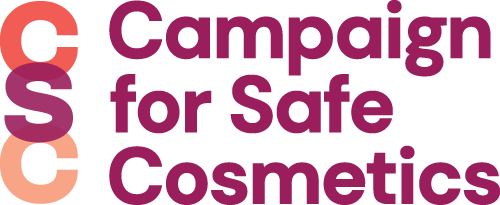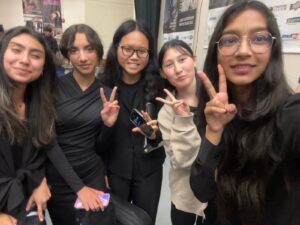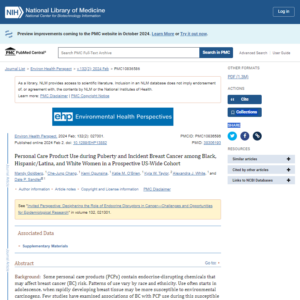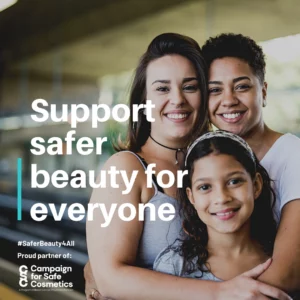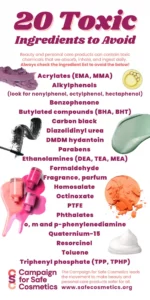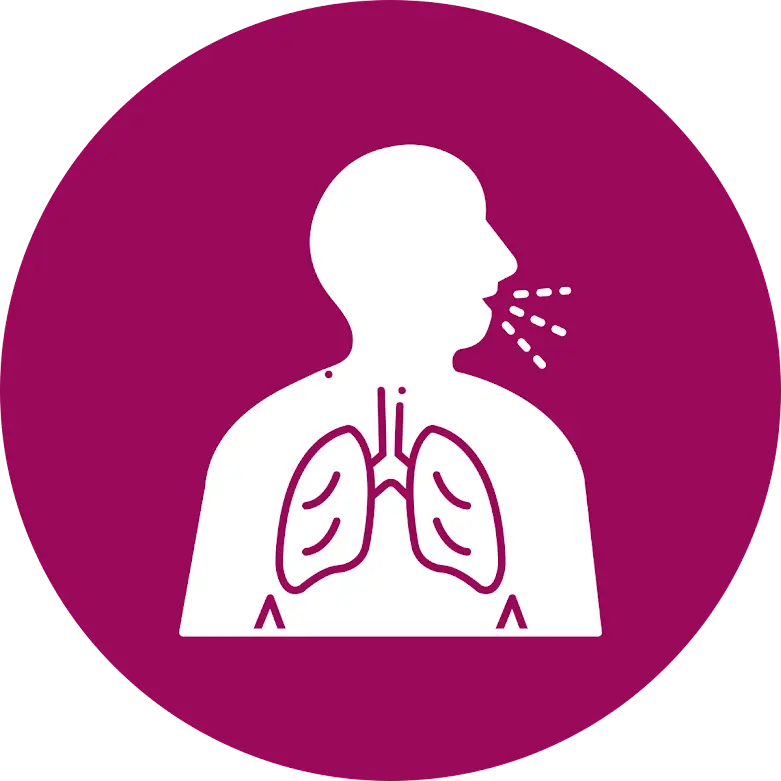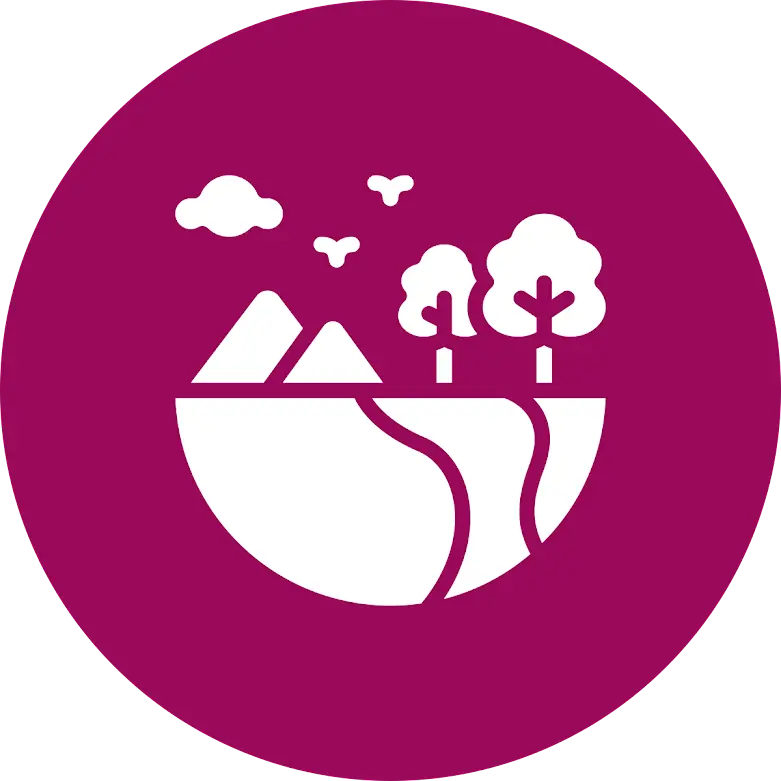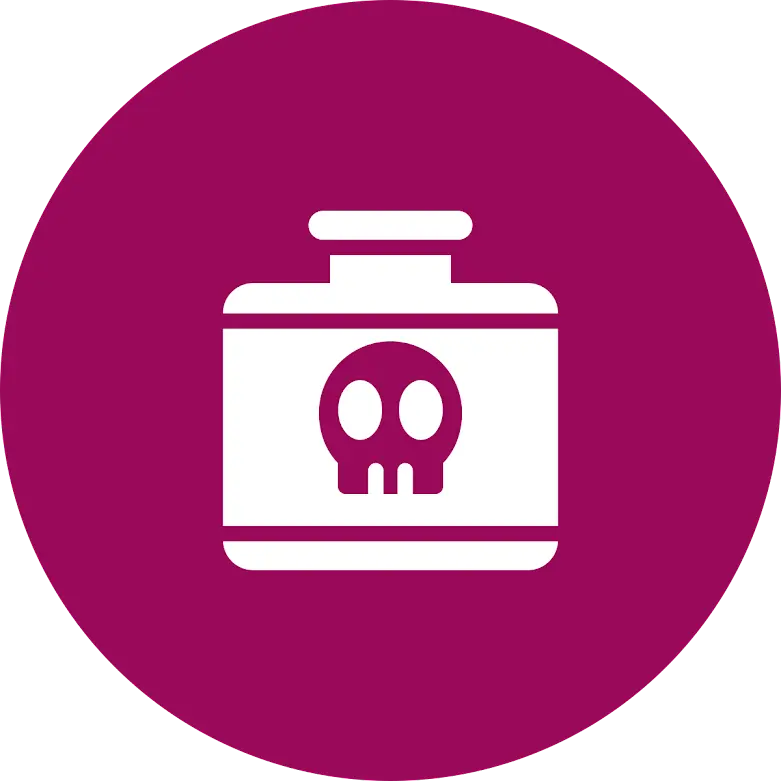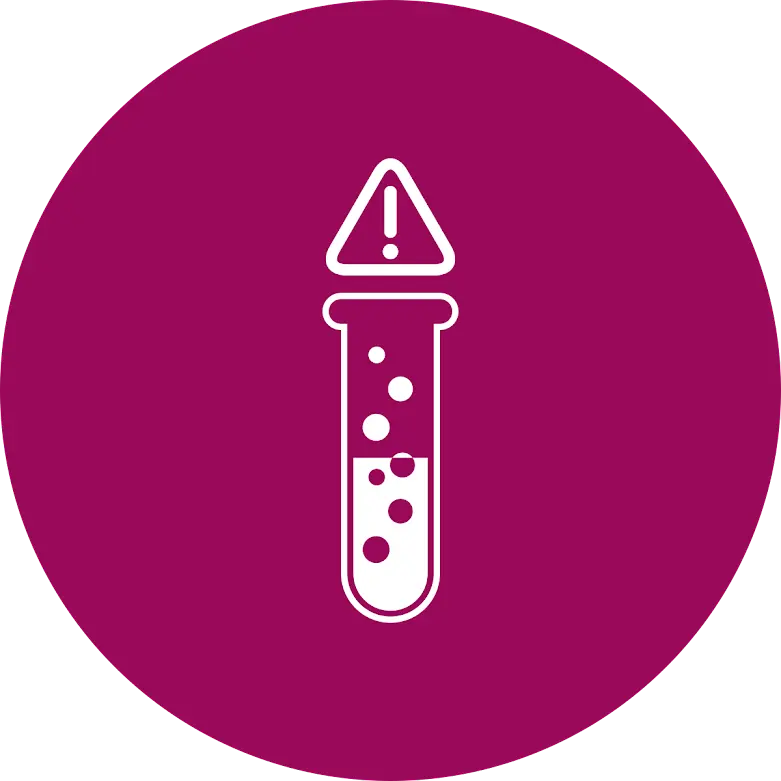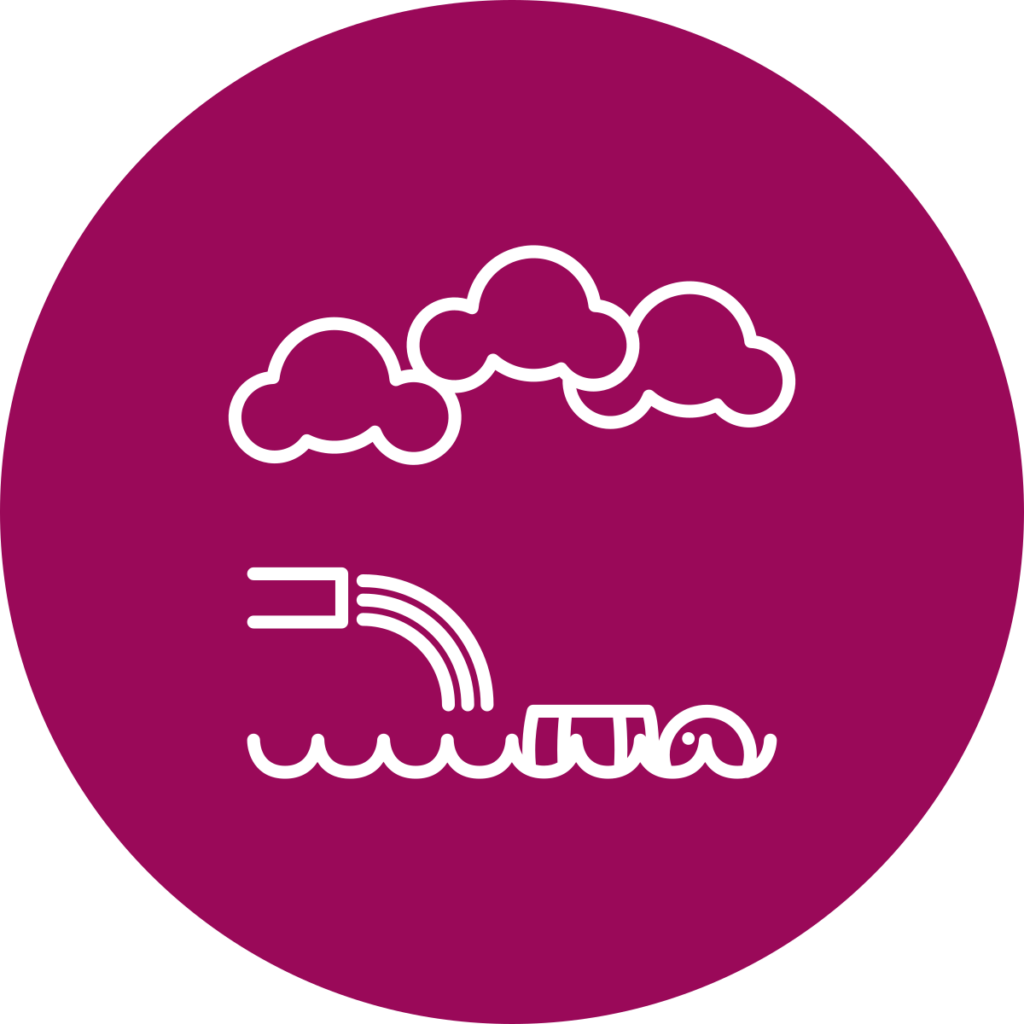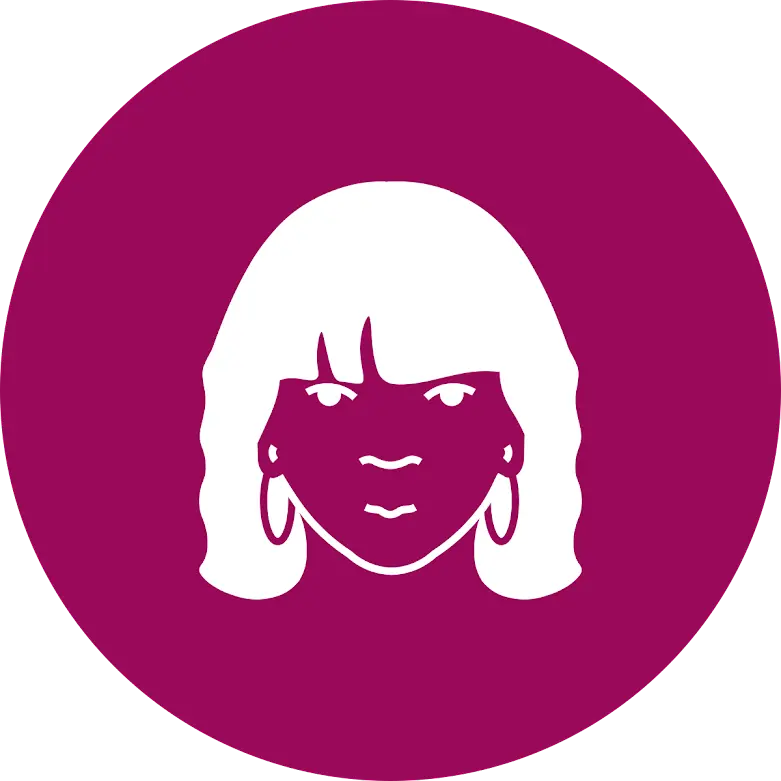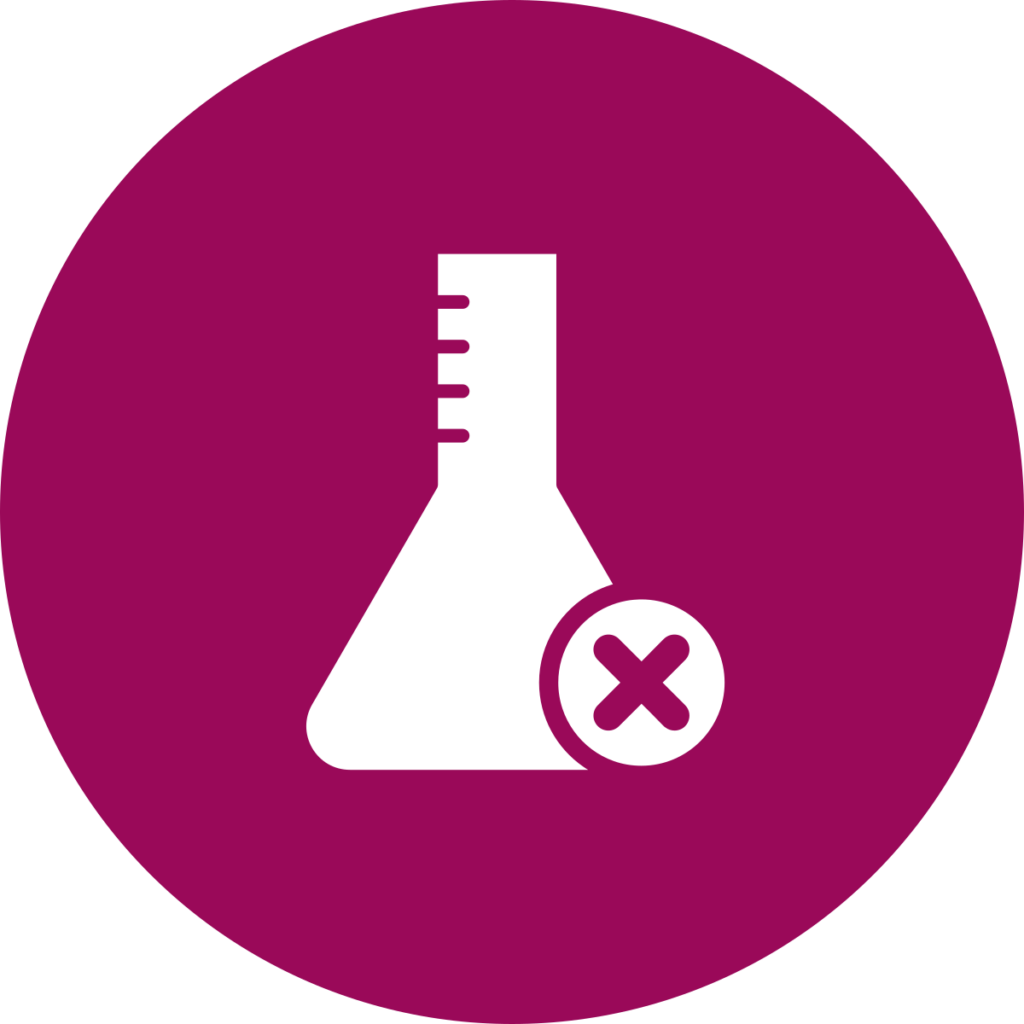FOR IMMEDIATE RELEASE
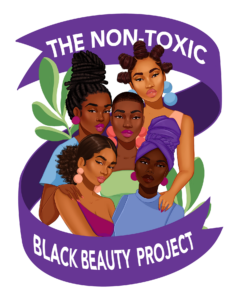
San Francisco, CA – The Campaign for Safe Cosmetics’ (CSC) new List of Top Non-Toxic Black-Owned Beauty Brands features entrepreneurs making safer beauty products for Black women, free of the toxic ingredients linked to breast cancer and health concerns that disproportionately impact Black women. This project brings health equity to the forefront by providing a database of clean beauty products to help Black women and girls live their healthiest lives and prevent breast cancer.
Project Supports Health Equity
Released during Breast Cancer Awareness Month, the Non-Toxic Black Beauty Project focuses on specifically supporting Black women’s health because Black women face the highest breast cancer mortality rate of any racial or ethnic group in America.[1] Beauty products marketed to Black women often contain the most toxic cosmetics ingredients, including chemicals linked to cancer. In fact, Black women who regularly dye their hair have a 60% increased risk of breast cancer, and those who use chemical hair straighteners are 30% more likely to develop the disease.[2] By uplifting leading non-toxic Black-owned beauty brands and connecting Black women with products they can trust, CSC aims to combat toxic health disparities to help prevent breast cancer and other diseases.
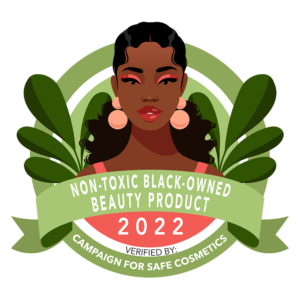
List of Non-Toxic Black-Owned Brands and Products Database
The 80 small and medium sized businesses who made the list raise the bar for ingredient safety and lead the movement to address the injustice of Black beauty by selling products free of CSC’s 241 “Do Not Use” Red List Chemicals of Concern in Cosmetics. CSC vetted all 700+ products included in the first-ever searchable database for safety and verified them as free of harmful chemicals linked to health concerns like cancer, diabetes, early puberty, endometriosis, infertility, maternal health, pregnancy complications, and uterine fibroids.
“We are thrilled to announce the launch of our searchable database of non-toxic Black beauty products. The companies we’re showcasing are making safer Black beauty products that won’t harm the health of Black women and girls. We hope that more and more companies will follow their lead and help grow the clean Black beauty industry by selling non-toxic makeup and personal care products that Black women can trust.”
– Janet Nudelman, Director of the Campaign for Safe Cosmetics, a program of Breast Cancer Prevention Partners.

“As a scientist, I’ve spent years researching and documenting the presence of toxic chemicals in hair care and other personal care products marketed to Black women,” said Dr. Tamarra James-Todd, Associate Professor at the Harvard T.H. Chan School of Public Health. “What makes me so happy about this project, is that it has taken that science and translated it into information that can be used to avoid toxic chemicals linked to a variety of adverse health conditions that disproportionately affect black women. Having tools such as these provides an opportunity to reduce environmental health disparities through education and empowerment.”
By eliminating toxic ingredients that negatively impact Black women, these companies have made a significant commitment to protecting their customers’ health and well-being. They are also helping to reduce the disproportionate toxic burden that Black women face from unsafe chemicals in beauty and other consumer products they use, which can help prevent the development of chronic diseases like breast and ovarian cancer.
As Black women purchase and use more beauty products per capita than any other demographic, spending more than $7.5 billion dollars on beauty products a year[3] and nine times more on hair products than the average consumer,[4] toxic exposure from beauty products is of particular concern.

“With the emergence of the clean beauty movement, consumers are increasingly aware of the potential that their personal care products might contain harmful, toxic chemicals,” said Dr. Adana Llanos, Associate Professor at Columbia University Mailman School of Public Health. “Black women spend substantially more money on cosmetics and hair products annually than other demographics in the U.S., and we also tend to have the worst outcomes for numerous health conditions. So, if harmful exposures from the products we are using contribute to persistent health inequities, we need resources to help promote the purchase of safer products. The Non-Toxic Black Beauty Project will be that resource for Black women and their families. Highlighting the Black-owned beauty brands offering these safer options is icing on the cake!”
Black Beauty Project Guided by Advisory Committee
Our Advisory Committee made up of leading non-profit organizations and scientists working to improve Black women’s health guide the Non-Toxic Black Beauty Project.
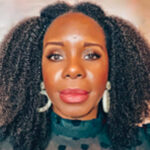
“Black women carry a disproportionate amount of exposure to toxic chemicals, and all products are not created equal,” said Dr. Astrid Williams, Environmental Justice Manager for Black Women for Wellness. “At Black Women for Wellness, we advocate for safer and cleaner products to support our efforts to style our hair safely. Textured hair comes with its unique challenges. Choosing products that you feel confident and safe using can be difficult. The companies highlighted by this important project were vetted to ensure they are not using carcinogens and other harmful ingredients, making it easier for individuals to choose products and search for healthier options that are held to a higher standard of ingredient safety.”

Clean Beauty for Black Girls Founder and Executive Director Hannah McCall said, “Transparency is often the catalyst for long-term change and this data provides exactly that. The toxic burden facing many Black women paired with lack of awareness, access & beyond has gone on for far too long and is attached to far too many adverse health effects. This project is a pivotal piece of our pursuit of beauty justice. I’m so proud of how the Black Beauty Project sets a standard for possibility, expectations and consumer demand. Clean Beauty for Black Girls remains committed to moving that needle forward.”

“Black women pride ourselves on crafting our crowns in every style that reflects the identity we choose to share with the world in each moment,” said Dr. Dede Teteh, Assistant Professor of Public Health at Chapman University. “The Non-Toxic Black Beauty project provides us with the knowledge and tools that help us care for our hair and other beauty assets without compromising our health. This list is a call to action for support of Black-owned businesses with our money and to elect public officials who make our interest in removing toxic products from our shelves a priority.”

“As the California Black Health Network (CBHN) works to elevate the level of health literacy for Black Californians, and the importance of the impact of exposure to toxic chemicals on their health, well-being, and safety, it is critical that we educate the community about the risks associated with products that we use every day and take for granted that they are safe,” said Rhonda Smith, Executive Director of the California Black Health Network. “Black women in particular need to know about the safety and health risks associated with our hair and personal care products in order to avoid those chemicals that can contribute to the development of maternal health issues, breast cancer, diabetes, etc. We are excited to collaborate and partner with BCPP on the Black Beauty Project and share this important information with our community as part of our efforts to get to the root causes of health disparities, empower the community to be more proactive about their health and wellness, and enable Black women to make better choices and more informed decisions for themselves and their families.”

President and CEO of Tigerlily Foundation Maimah Karmo said of the project, “This is such a landmark initiative and one that is much needed. We know that Black women are negatively impacted by many social determinants of health, to include toxins in the environment. I’m proud to be a part of this project that will impact the health and lives of Black women and excited to see this launch of the database of non-toxic Black-owned beauty products. Educating companies and consumers is critical to creating bi-directional awareness and accountability to ensure we eradicate environmental toxins which create barriers to health and quality of life. This is a big step in the right direction to protect the health of Black women and girls. We encourage others to support this activity and Tigerlily is committed to supporting the clean Black beauty industry to ensure non-toxic make-up and personal care products are provided to Black women and girls.”

“We are honored to partner with the Non-Toxic Black Beauty project by leveraging the Clearya data analysis platform to screen thousands of product ingredient lists for hundreds of toxic chemicals,” said Amit Rosner, Co-founder at Clearya. “Data previously analyzed by Clearya from millions of online shopping interactions reveals that chemicals linked to cancer, reproductive toxicity, developmental harm and hormone disruption are commonly found in personal care products, which could disproportionately affect Black women and girls. The Non-Toxic Black Beauty project empowers Black women to make safer buying decisions and demonstrates to the beauty industry that setting higher safety standards can be both achievable and rewarded by consumers.”
This project represents the first comprehensive effort to generate a list of chemicals of concern in Black beauty products that should be avoided by consumers, cosmetic manufacturers, and retailers.
See our full list of expert speakers available for interview and quotes >
Contact:
Erika Wilhelm, Director of Marketing, Campaign for Safe Cosmetics erika@bcpp.org 415-539-5005
Janet Nudelman, Director, Campaign for Safe Cosmetics janet@bcpp.org 415-321-2902
###
About the Non-Toxic Black Beauty Project
The Campaign for Safe Cosmetics, a program of Breast Cancer Prevention Partners, is tackling the environmental injustice of Black beauty with our list of non-toxic beauty brands and database of products that Black women can trust. The products on our list are made and sold by Black-owned companies that are committed to safer beauty and personal care products without the toxic chemicals linked to health concerns that disproportionately impact Black women. To be included in the next CSC List, Black-owned businesses should contact safecosmetics@bcpp.org. Learn more at safecosmetics.org/black-beauty-project/
About the Campaign for Safe Cosmetics
The Campaign for Safe Cosmetics (CSC) is a 501(c)(3) not-for-profit organization that leads the movement to make beauty and personal care products safer for all. safecosmetics.org
About BCPP
Breast Cancer Prevention Partners (BCPP) is a 501(c)(3) non-profit organization focused on eliminating exposure to toxic chemicals and other environmental exposures linked to breast cancer. bcpp.org
Citations
[1] DeSantis, C.E., Fedewa, S.A., Goding Sauer, A., Kramer, J.L., Smith, R.A. and Jemal, A. (2016), Breast cancer statistics, 2015: Convergence of incidence rates between black and white women. CA: A Cancer Journal for Clinicians, 66: 31-42. https://doi.org/10.3322/caac.21320
[2] Eberle, C. E., Sandler, D. P., Taylor, K. W., & White, A. J. (2020). Hair dye and chemical straightener use and breast cancer risk in a large US population of black and white women. International journal of cancer, 147(2), 383–391. https://doi.org/10.1002/ijc.32738
[3] Bryant, Taylor. “How the Beauty Industry Has Failed Black Women.” Refinery 29. February 27, 2016. Available online: https://www.refinery29.com/en-us/2016/02/103964/black-hair-care-makeup-business. Accessed July 7, 2022.
[4] Bryant, Taylor. “How the Beauty Industry Has Failed Black Women.” Refinery 29. February 27, 2016. Available online: https://www.refinery29.com/en-us/2016/02/103964/black-hair-care-makeup-business. Accessed July 7, 2022.
